Standard Domain SSL Certificate
A Standard SSL Certificate can secure at a reasonable cost one domain suitable to blogs, portfolios, small business websites and informative websites. It has SHA-256 and RSA 2048bit encryption issued by renowned Certificate Authorities such as Sectigo and Comodo to protect the data between your site and visitors.
At SSL Cert Shop we have solved the problem of implementing Security SSL, by making it easy, quick and cost effective. The certificates work across any type of browser and devices and it is the intelligent decision of any single-site owner to get such type of Asset. Need more? Sign up with our Standard Wildcard SSL to cover an unlimited number of sub-domains.


Get it today @ $ 7.99 for a year
Positive SSL certificates are issued by a certificate authority (CA) and are designed to be a quick and cost-effective solution for securing a single domain or subdomain. These certificates can typically be issued within a few minutes of request, and they provide a basic level of security for your website. They secure customer transactions by encrypting sensitive information transmitted between a client and a server.
Read More
Get it today @ $ 9.99 for a year
Comodo Essential SSL Certificates are trusted SSL certificates that provide industry-standard encryption at an entry-level cost. These certificates use a paperless validation system to verify the ownership of the domain, and they are suitable for non-eCommerce websites that require encryption. They come with padlocks and are trusted by 99.9% of web browsers, giving customers confidence that it is safe to visit and interact with your website.
Read More
Get it today @ $ 6.99 for a yaer
Sectigo Positive SSL certificate is a trusted SSL certificate that can be used to secure your domain within a few minutes. It uses the SHA (Secure Hash Algorithm) encryption algorithm and 2048-bit cryptographic keys to maintain data confidentiality, and it can be configured on any server at your convenience. In addition to securing your domain, a Sectigo Positive SSL certificate can also help to improve the trustworthiness of your website by displaying a padlock icon in the web browser.
Read More
Get it today @ $ 7.99 for a year
Certum Commercial SSL certificate is a domain-validated (DV) SSL certificate that is issued based on domain verification. They are issued quickly, as the certificate authority (CA) only needs to verify that you own the domain for which you are requesting the certificate. Certum Commercial SSL certificates are suitable for situations where you need a quick and easy way to provide HTTPS (Hypertext Transfer Protocol Secure) for the communication between a client and a server.
Read More
Get it today @ $ 59.99 for a year
The Certum Commercial Wildcard SSL certificate is a European SSL alternative that is suitable for securing an unlimited number of subdomains at a competitive price. This certificate provides a basic level of security to your primary domain and subdomains and includes secure communication for both www and non-www domains.
Read MoreFrequently Asked Questions
It protects it in one, encrypts the content on-the-fly and presents the secure padlock icon.
Certificates basically get verified and delivered within (10 minutes) when the domain has been controlled.
Our Standard ssl certificate price starts from ~$6.99/year which equals or is below the highest pricing of vendors.
Standard ssl renewal on your account- gets warnings before expiration to maintain protection of your HTTPS connection.

Domain Validation

Google Approved

HTTPS Secure

256-bit Encryption

Show Your Visitors You Take Security Seriously
We offer the quickest and cheapest method to secure your web site, known as our Standard Domain SSL Certificates. They are meant to suit blogs, portfolios, personal websites and small businesses that do not end up gathering confidential information and do not engage in online payments.
It keeps their data encrypted on the way between your web servers and your visitors: no snooping, stealing, or messing around. Displays the padlock icon and HTTPS is enabled, making users immediately know that your site is safe.
To issue a DV SSL, all that we require is to check that you have the control to that domain- typically through either verifying an email address or a DNS address. No paperwork. There are no long queues. Minutes to disaster-proof protection.
What is ca signed certificate and how to get Ca signed certificate?
A CA-signed certificate is an extension of a browser's trust in your website. The main difference between a self-signed and a CA signed SSL certificate is how they're issued. In order to understand the differences between these two types of certificates, it's important to understand what happens when you install one on your web server.
READ MORE
Why Choose Certs Shop?









